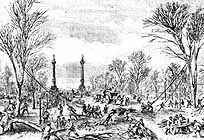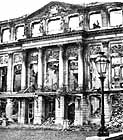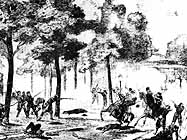Places
to visit
| Background
information |
Find
a book about it Franco-Prussian
War
& north France

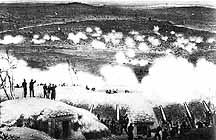 The Prussians surrounded Paris, set up their HQ at the Palace of Versailles, to the SW, and were able to bombard much of the city with Krupps' big new cannons. |
Overthrow
of Napoleon III Prussian
occupation Siege of
Paris Meanwhile at Versailles, the triumphant Prussians declared Wilhelm the new Kaiser of a united German Empire. Artists |
|
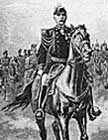 |
General Faidherb led the resistance of the Army of the North - which prevented Prussian occupation. There was no national coordination to join up France's provincial armies to help save Paris. |
|
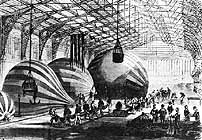 .Starved of news and communications with the rest of France, the city used the unused main-line railway stations and its precious reserves of coal-gas to make paper balloons, which volunteers used to take post out past the Prussians - a hazardous one-way trip. |
||
|
The Paris
Commune |
||
|
|
||
|
Effects on the
North In the 19th century, Alsace-Lorraine had become an important industrial area, with big iron and steel works. After 1871, these industries grew up in the North instead, protected by French tariffs from foreign competition. Lille, Valenciennes and Maubeuge prospered. |
||
|
(right) Louis Pasteur researched on microbes in Lille after the war . The city is an important centre for scientific and medical research with 3 universities. |
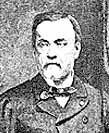 |
National
Pride Above all, the French were determined to win back the lost lands - the Prussian victory of 1870-71 made the First World War inevitable (and thus the Second World War too) |
|
||||
|
Interesting
web sources: |
||||
|
Places to
visit: |
||||
|
Related background
information |
|
|
|
|
|
